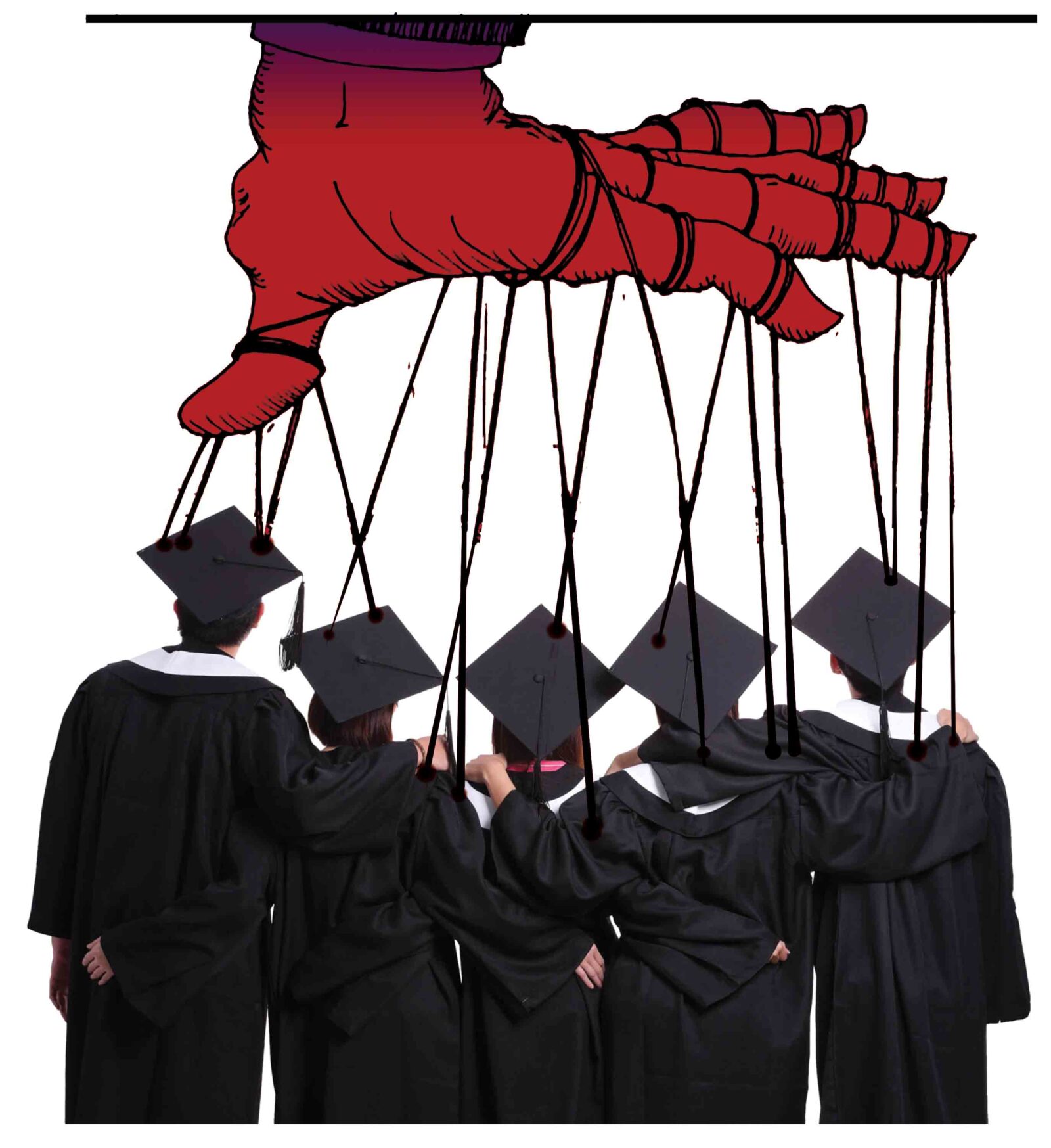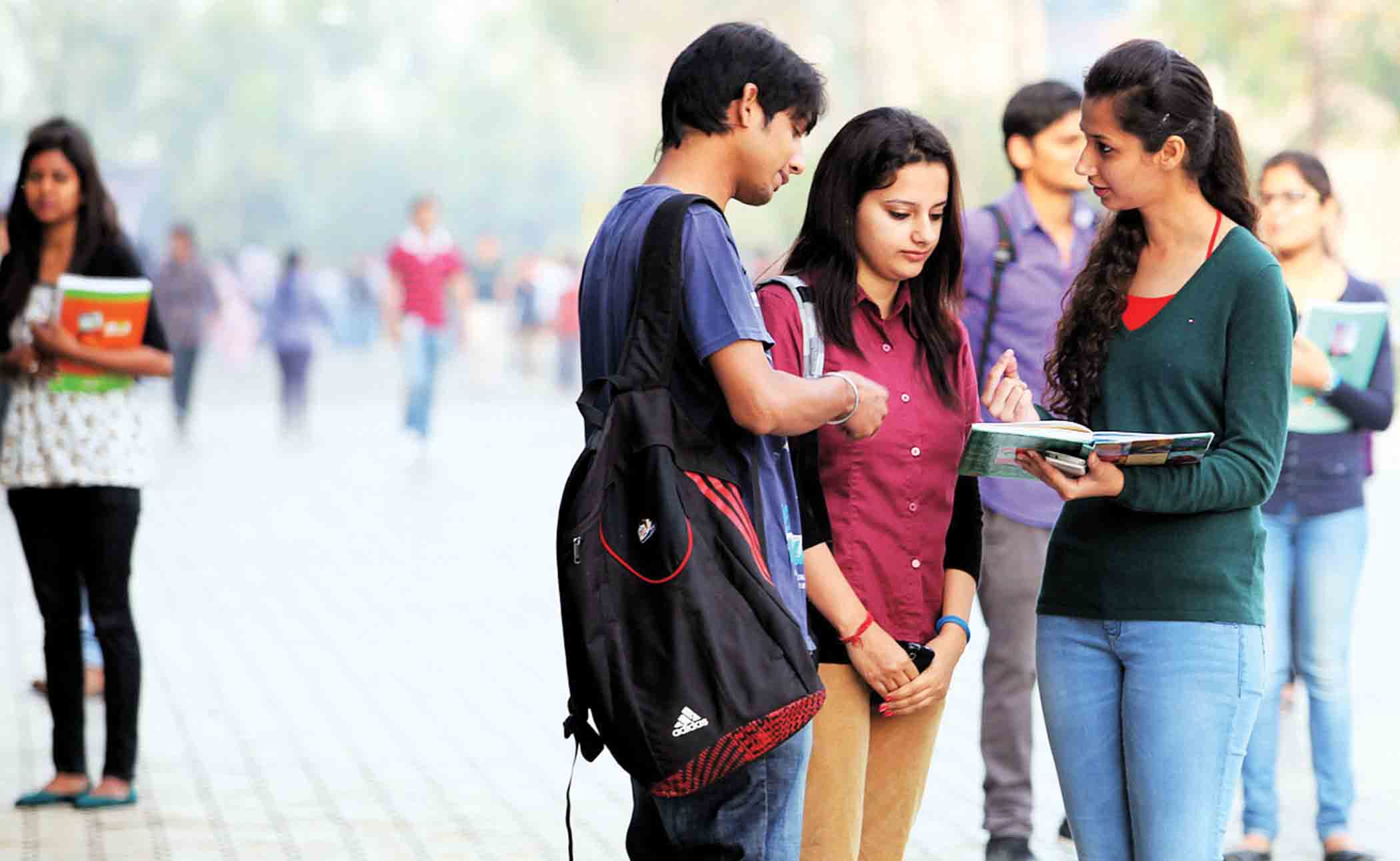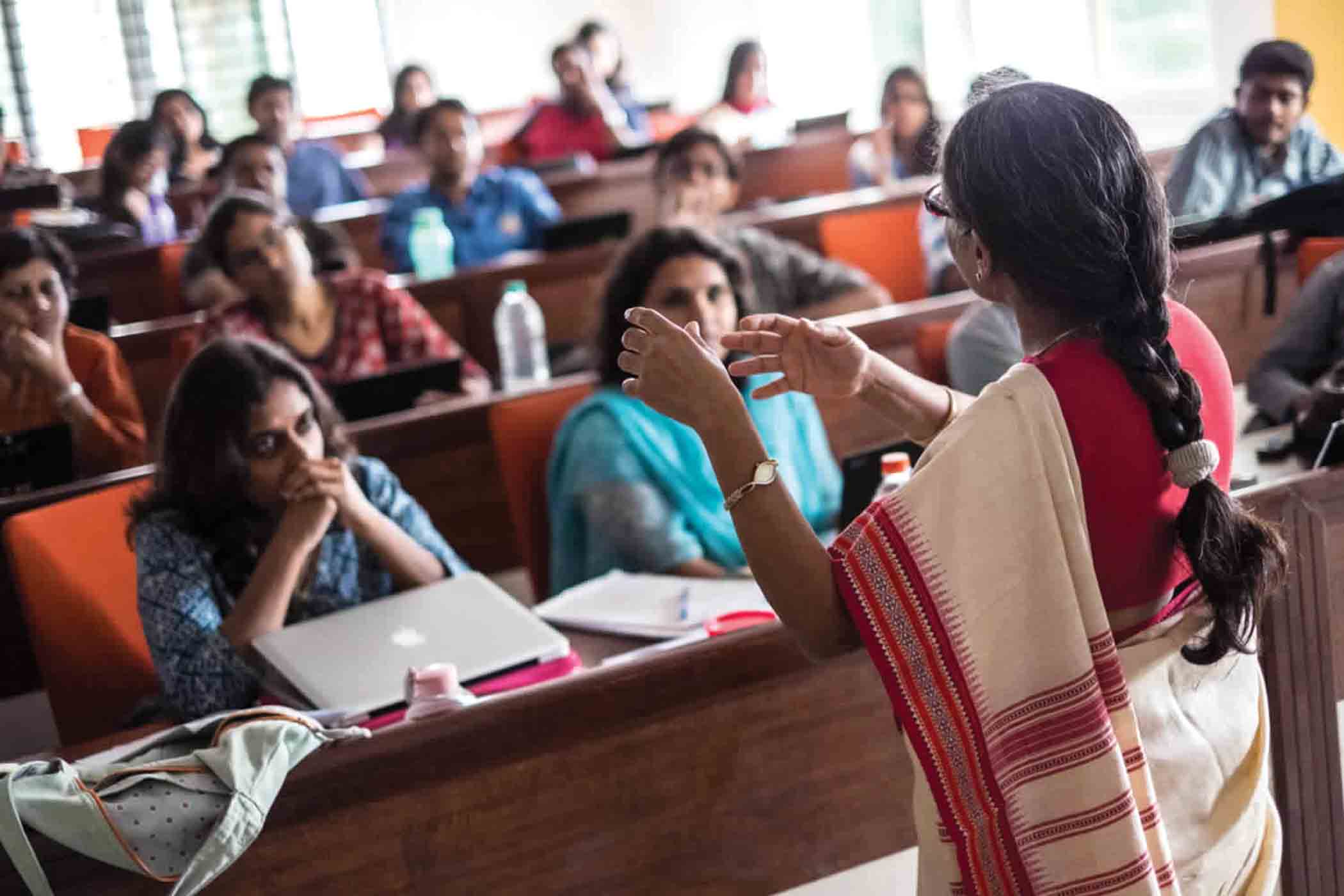- Cover Story
- Governance
- Globe Scan
- Corruption
- State Scan
- Talk Time
- Cover Story
- Governance
- Globe Scan
- Corruption
- State Scan
- Talk Time
Recent Posts
© Copyright 2007 - 2023 Gfiles India. All rights reserved powered by Creative Web INC.GovernanceAcademic autocracy and authoritarianism?
The proposed Higher Education Bill would abolish the somewhat autonomous UGC and bring higher education totally central control. Under this Bill, the role assigned to the States is at best perfunctory and militates against the very grain of federalism
MG DevasahayamNovember 9, 20188 Mins read89 Views
 Written by MG Devasahayam
Written by MG DevasahayamFascist nations tend to promote and tolerate open hostility to higher education, and academia. It is not uncommon for professors and other academics to be censored or even arrested. Free expression in the arts is openly attacked, and governments often refuse to fund the arts,” wrote Laurence Britt in his original article, ‘Fascism Anyone?’ We have been witnessing such hostilities in India’s institutions of higher learning for quite some time. This is now morphing into autocratic legislation and authoritarian rules as we will presently see.
Autocratic law
Let us critically look at the draft Bill titled “Higher Education Commission of India (Repeal of University Grants Commission Act) Act 2018.” Preamble of the Bill states:

“Whereas the Constitution of India mandates Central Government to take steps for coordination and determination of standards in institutions for higher education or research and scientific and technical institutions,
“Whereas for promoting uniform development of quality of education in higher educational institutions, there is a need for creation of a Body that lays down uniform standards, and ensures maintenance of the same through systematic monitoring and promotion,
“Whereas the existing regulatory structure as reflected by the mandate given to University Grants Commission (UGC) required redefinition based on the changing priorities of higher education and allow its growth,
“This Act provides for establishing the Higher Education Commission of India repealing the University Grants Commission Act, 1956. It is hereby enacted by Parliament in the 68th year of the Republic of India as follows.”
Item 66 of the ‘Union List’ in the Seventh Schedule under Article 246 of the Constitution concerning “institutions for higher education or research” has been deviously misinterpreted to bring forth an autocratic law!
Item 66 of the ‘Union List’ in the Seventh Schedule under Article 246 of the Constitution concerning “institutions for higher education or research” has been deviously misinterpreted to bring forth an autocratic law! The proposed legislation would abolish the somewhat autonomous UGC and bring higher education totally central control. Prior to 1976, higher education was a state subject. In 1976 (during Emergency) by 42nd amendment to the Constitution, it was made a concurrent subject. Now the present government is trying to make it a central subject without even bothering to take the constitutional amendment route! Under this Bill, the role assigned to the states is at best perfunctory and militates against the very grain of federalism.
Higher Education Commission of India (HECI) as envisaged would consist of a Chairperson, Vice Chairperson and 12 other members to be appointed by the Central Government with the Secretary of the Commission acting as Member-Secretary. Chairperson shall be selected by a Search-Cum-Selection Committee, consisting of Cabinet Secretary (Chair), Secretary, Higher Education, and three ‘eminent academicians’ to be co-opted as members.
Twelve members of the Commission would comprise of (a) three secretaries to the Government of India—Higher Education; Skill Development & Entrepreneurship; Science and Technology; (b) Chairpersons of All India Council for Technical Education and National Council for Teacher Education; (c) Two Chairpersons of the Executive Council/Governing Body of accreditation bodies; (d) Two serving Vice Chancellors of Universities known for their academic excellence; (e) Two serving Professors of Universities, reputed for research and knowledge creation; (f) One doyen of Industry. The above composition shows that HECI will have only five members outside the official system.
Performance evaluation of higher education institutions (HEIs) is accompanied by severe penalties for non-performance or for providing misleading information on performance. Past experiences with performance evaluations for accreditation or affiliations show that there are inherent tendencies for manipulation of data and worse still, manufacturing fake data. It would require extraordinary efforts to put in place a credible system of evaluation before the prescribed punishments can be implemented.

The draft Bill was uploaded on the Union Ministry for Human Resources Development (MHRD) website on June 28, 2018. Public comments were invited initially until July 7, later extended till July 20. This tearing hurry is intriguing because this Bill has been put out even while the Committee constituted by MHRD for preparing new education policy is yet to submit its report.
The draft Bill vests the power to create new universities in the HECI by a set of criteria and eliminates the need for legislation for this purpose. This takes away the power of the States to approve new universities whether public or private. HECI is also authorised to confer degree giving power on both universities and colleges based on specified norms thereby paving the way for the emergence of degree-granting colleges. This will result in proliferation of degrees and consequent mediocrity.
HECI also can bestow affiliating power on both public and private universities provided they meet the specified norms. This could start the trend of private universities affiliating colleges with questionable credentials. Bill provides for enforcement of norms by transparent self-disclosure by HEIs and any falsification will attract punitive action. Considering nearly 800 university level institutions and another 40,000 colleges in the country, it will be a herculean task to keep track of adherence to self-disclosures. HECI can close down non-performing HEIs if they do not fulfil minimum educational quality standards. In the hands of a centralised authority this could lead to arbitrary inspection raj and corruption.
The most absurd part of the Bill is that Universities now have to take the concurrence of the HECI before offering a course. This destroys the freedom of a university’s Board of Studies and is regressive
The most absurd part of the Bill is that Universities now have to take the concurrence of the HECI before offering a course. This destroys the freedom of a university’s Board of Studies and is regressive. What is more, with its mandate of improving academic standards with a specific focus on learning outcomes, evaluation of academic performance by institutions, and training of teachers, the HECI is likely to overregulate and micro-manage universities.
The issues concerning funding of the HEIs remains murky. The UGC used to fund capital development in HEIs and running expenses in eligible institutions. Under HECI it is still not clear as to what kind of grants will be given by this body. The initial fear expressed by many educationists was that the funding functions of UGC will be taken over by the MHRD leading to bureaucratic and political control over HEIs. It is also unclear about the composition of such a body and the manner it will be constituted.
There is also mention of a Higher Education Funding Agency (HEFA), a non-banking financial institution, which is expected to mobilise Rs 1 lakh crore through banks and Corporate Social Responsibility funds and private contributions. These funds will be available to HEIs as loans for development activities. The interest will be borne by the MHRD while the loans will have to be repaid in instalments by the HEIs. How will the institutions, particularly the state-owned, earn money to repay the loan is an open question!
True to its style of deceit, government is touting this legislation as an example of ‘minimum government and maximum governance’ while the reality is just the opposite. The Bill is so draconian as to lay down heavy fines/penalties and even jail sentence for “non-compliance of directions of the HECI” thus taking away all semblance of autonomy.
Authoritarian Rules
Not content with legislating academic autocracy, BJP Government is also imposing Central Civil Service (Conduct) Rules, 1964 as amended in 2014 (CCS Rules) on the Central University teaching faculty. These Rules prohibits civil servants from:

(a) being a member of, or be otherwise associated with, any political party or any organisation which takes part in politics nor shall he take part in, subscribe in aid of, or assist in any other manner, any political movement or activity.
(b) canvassing or otherwise interfere with, or use his influence in connection with or take part in an election to any legislature or local authority:
(c) resorting to or in any way abet any form of strike or coercion or physical duress in connection with any matter pertaining to his service or the service of any other government servant.
(d) conducting or participating in the editing or management of any newspaper or other periodical publication or electronic media, except with the previous sanction of the government.
(e) making any statement of fact or opinion in any radio broadcast, telecast through any electronic media or in any document published in his own name or anonymously, pseudonymously or in the name of any other person or in any communication to the press or in any public utterance (i) which has the effect of an adverse criticism of any current or recent policy or action of the Central government or a State government: (ii) which is capable of embarrassing the relations between the Central government and the government of any State; or (iii) which is capable of embarrassing the relations between the Central government and the government of any foreign State.
In recent times the imposition of CCS Rules is being witnessed in several Central Universities under the direction of UGC which itself is being abolished for having some semblance of autonomy! Many new Universities created by the Central Universities Act 2009 have adopted the CCS Rules
Of all these, item (e) will have serious ramifications for the academic community. In one stroke they will lose their independence of critical thinking as well as free expression of ideas and each one of them will be converted into yes men of the government. This is academic atrophying in its rawest form and is repugnant to the Allahabad High Court ruling that Professors/Lecturers of the University are neither members of a service nor do they hold a civil post under the Union nor they are in the service of local or other authority.
In recent times the imposition of CCS Rules is being witnessed in several Central Universities under the direction of UGC which itself is being abolished for having some semblance of autonomy! Many new Universities created by the Central Universities Act 2009 have adopted the CCS Rules. The Central University of Kerala recently invoked these Rules to suspend a faculty member for a Facebook post criticising the University Administration for getting a student arrested. Now, the net is being cast wider to include the older Central Universities—the most recent case being its imposition in Jawaharlal Nehru University.
Key tasks of HECI are:
- specifying learning outcomes for courses of study;
- laying down standards of teaching /assessment/research or any aspect that has bearing on outcomes of learning;
- evaluating the yearly academic performance by monitoring the performance on certain criteria;
- promoting research and coordinate with the government for providing adequate funding for research;
- putting in place a robust accreditation system or evaluation of academic outcomes;
- mentoring of institutions found to be failing in maintaining the required academic standards;
- ordering closure of institutions which fail to adhere to minimum standards or fail to get accreditation within the specified period;
- advising the Central Government or any State Government on any question which may be referred to the Commission;
- prescribing proactive public disclosure of various parameters of academic performance and academic outcomes.
According to the Federation of Central Universities Teachers’ Associations (FEDCUTA), there are constant threats being posed to the freedom of expression and other democratic rights of teachers of Central Universities through attempts to bring them under the ambit of the CCS Rule. Constraining the freedoms of teachers that are vital to them for performing their prime function, i.e. teaching and research, through such impositions, in combination with the attacks on their autonomy represent grave threats to the future of our Universities and their ability to contribute to the nation’s progress. For FEDCUTA imposing CCS Conduct Rules on University and College teachers is illegal and unconstitutional.

The whole idea of equating civil servants with university professors and lecturers is absurd and obnoxious. Civil servants are a different breed because they are actively involved in formulation of policies and programmes and their implementation as per the manifesto of the political parties that have been voted to power by the people. They also have to serve the government of the day faithfully. But this is not so with professors, lectures and researchers. In fact, they should be encouraged to differ and dissent so that informed opinion and scholarship can help in progressive policy formulation and equitable implementation. Choking such knowledge and creativity is nothing but fascist.
The lethal combination of this autocratic law and authoritarian rule will atrophy free thought, creativity and innovation in higher education and could reduce future generations in to zombies and mediocrities. This cannot be countenanced.
Writer is a former Army and IAS Officer
Recent Posts
Related Articles
GovernanceNewsBackdoor entry of Private players in Railway Production Units ?
Written by K. SUBRAMANIAN To Shri G C Murmu C&AG Dear Shri Murmu,...
ByK. SUBRAMANIANFebruary 22, 2024GovernanceNailing Labour to The Cross
Written by Vivek Mukherji THEY grease the wheels of India’s economy with their...
ByVivek MukherjiMay 5, 2020GovernanceBig Metal Momentum
Written by GS Sood PRECIOUS metals especially gold and silver are likely to...
ByGS SoodMay 5, 2020GovernanceStrengthening Social Enterprise Ecosystem: Need for systemic support from the Government
Written by Jyotsna Sitling and Bibhu Mishra THE world faces several challenges today....
ByJyotsna Sitling and Bibhu MishraMay 5, 2020 - Governance
- Governance





























































